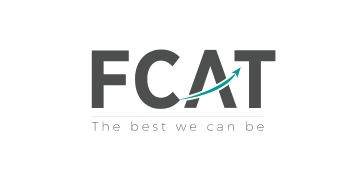Sir Michael Wilshaw is right: governors need professional development. But he’s wrong about the money. It would be a mistake to do away with the voluntary nature of governance altogether
Governance is getting better. Boards are taking their development seriously, many more understand performance data than five years ago, and far more are concentrating on key issues that should improve teaching and learning. More than four out of five governing boards carry out skills audits and most fill any identified gaps.
But there is still some shocking governance, and we need to ensure that a “self-improving” system does not leave those schools to decline until Ofsted visits. We are calling for the vast majority of good and committed governors to join a movement to help the bottom 10 to 20 per cent who are struggling. We have also been trying to persuade the Department for Education (DfE) to support a pilot to place excellent interim chairs in at least some of these schools; if we are to parachute great teachers and middle leaders into schools, why not great chairs?
Volunteering, civic society, call it what you will, is an important part of British life
We know the things that make a difference: a great chair, a professional clerk and high quality training and development for governing boards. So we were pleased when Ofsted chief Sir Michael Wilshaw once again joined in the clamour that has developed over the year for mandatory training — or, better still, let’s call it professional development. Mandatory induction is expected in other responsible voluntary roles, and it is plainly ridiculous that someone can start governing without knowing exactly they have volunteered to do. Both the National Association for Head Teachers and the Association of School and College Leaders support professional development, and less than 5 per cent of the 5,800 governors and trustees who responded to our 2015 annual did not. We hope that with this level of support, the DfE will see fit to invest more in this area.
However, the other main suggestion from Sir Michael is a red herring — payment of governors. Volunteering, civic society, call it what you will, is an important part of British life: at Governor HQ, we argue that it is a British value. Call us quaint if you must, but the giving of time and skills to make the community a better place is a well-established part of British society and part of governance in many sectors. At NGA we are involved in a number of initiatives to learn from governance in other sectors — this was a big theme at our annual conference. This is not a world Ofsted is involved with, and we do take umbridge at Sir Michael’s perjorative use of “amateur” in describing school governance. It has two definitions: “engagement in an activity without financial gain” and “being unskilled or inexperienced”. While I agree that those governing our schools must not be the latter, NGA has concluded that it would be a mistake to do away with the voluntary nature of governance altogether. One doesn’t need to be paid to do a professional job.
But let’s be pragmatic. When school structures grow into larger federations or multi-academy trusts (MATs), and the governance role becomes more demanding and time consuming, the issue of pay may need revisiting; if a chair of board of trustees of a very large MAT needs to spend half a week undertaking the role, that is a different scenario. There’s also governing on interim executive boards, which in our view should be used more often and always be paid — the clue is in the name. But, on the whole, we need to continue the still relatively new practice of recruiting governors and trustees on the basis of skills before prematurely abandoning the well established charity model of governance.
So while we welcome Ofsted’s spotlight on governance, and will enjoy the debate, we don’t want it to distract governing boards from improving nor to demoralise them as once again governors get a bashing in the press. We do question whether Ofsted alone has the expertise to conduct such a review themselves. Their own school reports suggest that inspectors do not always understand the strategic nature of governance, nor the lines of accountability, especially in MATs. Although on this latter, we might have achieved a breakthrough – we are waiting with bated breath, to see when, not if, Ofsted changes the named “appropriate authority” to the MAT. This should be a start to better informed conversations about governance.







In Wales training for new Governors and also on re-election is compulsory now.
Chairs are also required to attend training when first taking up the role.